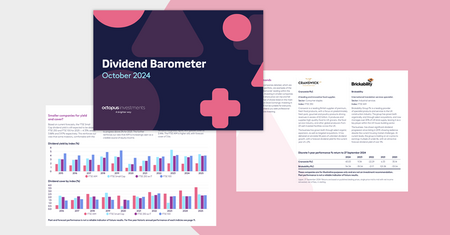Inheritance tax calculator
How it works
Everyone can leave up to £325,000 of their total estate free of inheritance tax (the nil-rate band), provided this allowance hasn’t been used during their lifetime for making gifts or settling assets into a trust. Lifetime gifts, including those made as part of inheritance tax planning, may impact the amount of tax due on your estate.
A person’s estate is the sum of their savings, investments, the market value of the house they live in and their other assets.
There’s an additional inheritance tax allowance to be aware of – the residence nil rate band (RNRB).
Things to bear in mind
Inheritance tax can be a complicated topic and this calculator is intended to help you understand some of the key areas, including the effect of gifts on your inheritance tax liability. It’s been prepared in good faith and is based on our understanding and interpretation of the current law for death before April 2026.
Keep in mind that specific circumstances that are outside of the scope of this calculator may result in different levels of inheritance tax being due. Also bear in mind that legislation may change in the future.
If you want to return to an earlier step in the calculator select the numbers 1, 2, 3 or 4 below associated with the relevant step.
1
Assess your situation
How much is your house worth?
Other properties
Savings
Investments
Non-Business Relief qualifying ISA investments
Gifts within the last 7 years
Other assets
Loans and debts
Based on the estimated figures you have entered, this gives an estate value of:
House value: £ 0
Value of other assets: £ 0
Total deductions: - £ 0
Total estate value: £ 0
Next
2
Your marital status
What is your marital status?
-
Married/Civil partnership
-
Widowed
-
Unmarried/Divorced
Assets left to spouses are not normally subject to inheritance tax. If you expect to inherit all of your spouses assets. It may be useful to provide information of the value of the joint estate and select 'Widowed' in the marital status.
Did your spouse leave all their assets to you?
What percentage of their nil-rate band did they leave unused?
What percentage of their residence nil-rate band did they leave unused?
Was the value of your spouse's estate more than £2 million when they died?
What was the value of your spouse’s estate when they died?

If your spouse's estate exceeded £2 million, your transferrable residence nil rate band will be reduced, or even eliminated, according to the residence nil rate band tapering rules where £1 is lost from the residence nil rate band for every £2 over a £2 million estate.
For this calculation, we have assumed that the residence nil rate band was £175,000 at the time of your spouse's passing. If your spouse passed before 6 April 2017 and
their estate was greater than £2 million, residence nil rate band of £100,000 applies for the tapering test and we recommend you seek professional advice to fully understand your situation.
Next
3
Plan for the future
Do you plan to leave your house to your direct descendants (children or
grandchildren) when you die? 
Next
Before Starting
Inheritance tax can be a complicated topic and these tools are intended to help you understand some of the key areas. They have been prepared in good faith and are based on our understanding of the law and our interpretation of it. But we do not provide tax advice. So, while we have tried to make inheritance tax simple, this calculator is not intended as a proxy for taking professional advice - advice that will help you understand how much tax may be due on any gifts you make or on your estate.
We always recommend that, prior to undertaking any tax planning, you seek the advice of a qualified professional adviser. He or she can take your personal circumstances into account and give up to date advice based on the rules at the time.
The investments that we manage are high risk and the value of an investment, and any income from it, can fall as well as rise. Investors may not get back the full amount they invest. Tax treatment depends on individual circumstances and may change in the future. Tax reliefs depend on the portfolio companies maintaining their qualifying status. The shares of the smaller companies we invest in could fall or rise in value more than shares listed on the main market of the London Stock Exchange. They may also be harder to sell. Issued by Octopus Investments Limited, which is authorised and regulated by the Financial Conduct Authority. Registered office: 33 Holborn, London, EC1N 2HT. Registered in England and Wales No. 03942880. Issued: November 2016
Click or tap this pink button to confirm you belong here and you have read the information above. Ready?
Key risks
Capital at risk
The value of investments, and any income from it, can fall as well as rise. Investors may not get back the full amount they invest.
Tax relief can’t be guaranteed
Tax relief depends on the companies invested in maintaining their BR-qualifying status. Tax treatment depends on individual circumstances and tax rules could change in the future.
Volatility and liquidity
The shares of AIM-listed and unlisted companies could fall or rise in value more than shares listed on the main market of the London Stock Exchange. They may also be harder to sell.
BR is assessed on a case-by-case basis
We cannot guarantee that the investments we make will qualify for BR in every case in the future. HMRC will only conduct a BR assessment after the death of an investor, to confirm whether the companies invested in qualify for BR at that time.
Notes and Assumptions
This calculator does not take into account house-price growth over time or rising investment values. On this basis, you may expect your inheritance tax liability to increase over time.
This calculator is designed to be easy to use, and as such it cannot cater for detailed scenarios such as the RNRB available in the event of downsizing, how the £2 million tapering test applies where BR investment has been made, lifetime gift cumulation rules, or taper relief. It is intended to be a starting point when looking at your personal situation.
If you calculated multiple different scenarios and didn’t refresh the web page before starting each one, the results displayed above may not be correct.
Next steps
Explore Business Relief
Investments that qualify for Business Relief provide relief from inheritance tax and can help investors pass on more to loved ones.
Contact our team
Got a question? Call us at 0800 316 2295
Next steps
Explore Business Relief
Investments that qualify for Business Relief provide relief from inheritance tax and can help investors pass on more to loved ones.
Create an illustration
Find everything you need to start an illustration on behalf of your client.
Contact our team
Need support from an Octopus business development manager? Call us at 0800 316 2067




